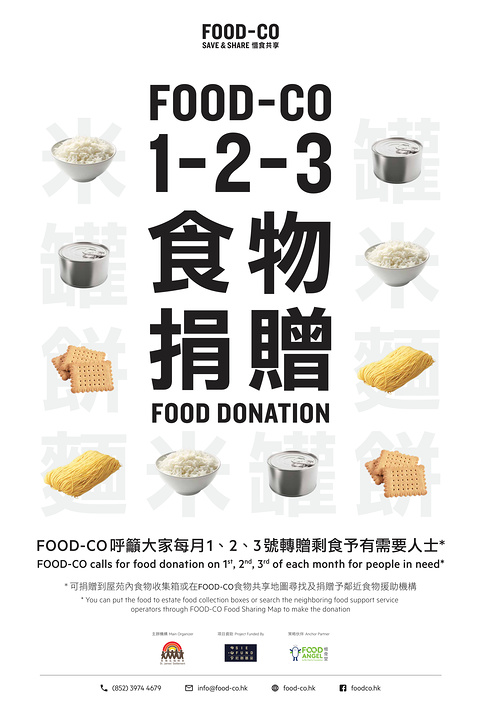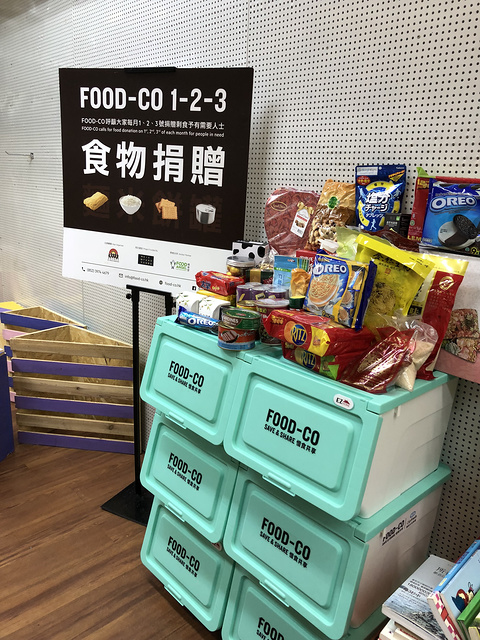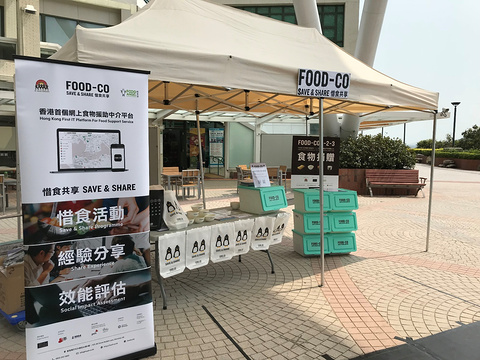Innovative policies for poverty alleviation
24 June 2018
In Hong Kong, more than 3 000 tonnes of food are thrown away every day while some disadvantaged families have to depend on food aid. Food assistance as a charity service is in fact gaining support from different sectors of the community. From the handout of dry rations in the early days to the more recent provision of hot meals, and organising bargain markets and group purchases, more and more people are joining the league to help bring food to the needy.
 |
However, information gaps have caused many prospective individual and organisation donors unfamiliar with local food aid agencies to feel stuck. As a result, the food resources are unable to go to and benefit those in need effectively. In addition, there are other problems such as failure of some service points to respond appropriately to local needs, over-concentration of resources in certain districts, and inadequate co-ordination among service units causing higher transport costs.
It was against this background that FOOD-CO was set up under government sponsorship. In June 2016, the Government engaged the St. James’ Settlement as the intermediary for the project with an allocation of about $10 million from the Social Innovation and Entrepreneurship Development Fund (SIE Fund), which was established with funding of $500 million from the Lotteries Fund. Hong Kong’s first all-round, cross-sectoral and multi-disciplinary food support collaborative platform was then launched in May 2017.
Through a mobile app that combines technology and data analysis, FOOD-CO allows food support service operators and organisation donors to offer food donations or apply for donated food anytime, anywhere and get the latest update on the supply and demand. Food donation and collection become much quicker and flexible, and less surplus food is wasted as a result. By enhancing the efficiency and effectiveness of our food support service, FOOD-CO also demonstrates how social innovation can address poverty. Following a trial run in Kwai Tsing, Kwun Tong and Yuen Long, the service was extended to the whole territory in November 2017.
 |
FOOD-CO is an exemplary Government initiative in promoting community-business-government partnership to help those in need. I am glad that over 330 food donors and 220 food aid agencies have been linked up through FOOD-CO. In just over one year, the average daily supply of hot meals and packaged food has increased from the pre-FOOD-CO level of about 33 000 sets to more than 40 000 sets across the territory. It is hoped that the daily supply can be further increased to 50 000 sets by 2019 to provide 20 000 people with one to three meals (breakfast/lunch/dinner) a day, allowing more to enjoy the benefits.
There were reports about FOOD-CO speedily fixing the collection of 88kg fresh fruits and vegetables by food aid agencies nearby within ten minutes. It is also said to have distributed to 21 suitable agencies 37 tonnes of baby formula milk powder in three shipping containers, the largest case of food donation that it has processed so far.
FOOD-CO also strives to cultivate a culture of “save and share” in the community through enhancing public awareness of the issue of food waste while enlisting public support for less wastage and more donation.
 |
St. James’ Settlement will announce the first-year results of FOOD-CO two days later (on 26 June), and I will attend the Partners Recognition Ceremony to be staged on the same occasion. The good example set by FOOD-CO is encouraging. It highlights the significance of community-business-government collaboration and cross-sectoral participation, as well as the achievements of innovative solutions in tackling complex social issues.
FOOD-CO is one of the successful projects sponsored by the SIE Fund, a funding scheme with a scope covering healthcare, diet, living, transport, learning, employment, community participation, etc. The scheme aims to employ innovative ideas, products and services to address social needs for reducing and preventing poverty and social exclusion, and thus create a social impact that can improve the life of the underprivileged.
Research, Capacity Building and Innovative Programmes are the three priority components of the SIE Fund’s initiatives. About $130 million was allocated to take forward the work and about 140 projects were sponsored over the past three years, benefitting a total of 100 000 people from vulnerable groups, including persons with disabilities, children and youth, low-income families, the elderly and ethnic minorities, by improving their quality of life and enhancing their integration into society. The quantitative target of funding 100 innovative projects within three years has been exceeded. Besides, over 900 innovative ideas have been generated with its support.
Poverty alleviation is a major policy objective of the current-term Government. We are very supportive of poverty relief initiatives that are progressive and innovative. Apart from food aid, I look forward to more other joint efforts to leverage technologies and cross-sectoral collaboration. The Government is committed to serving as the “facilitator” and, on the principle of being “Innovative, Interactive and Collaborative”, working together with all sectors to build a caring and cohesive community in Hong Kong.

